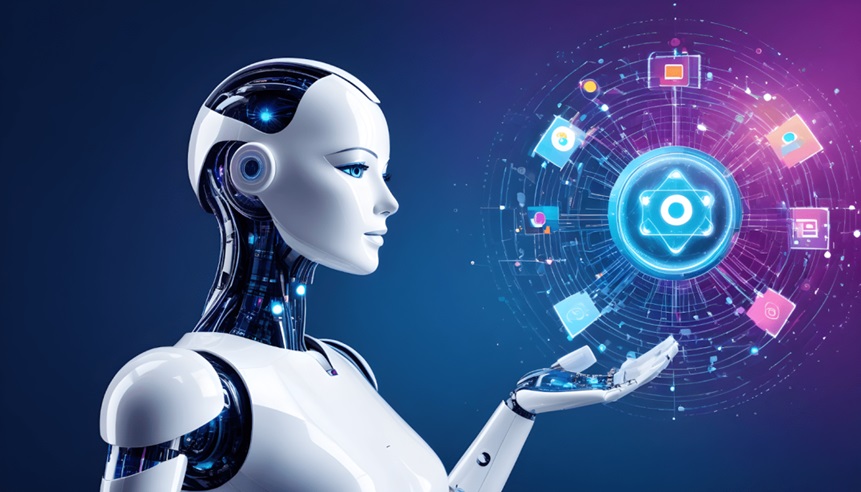As technology continues to evolve, digital marketing is transforming never before. Artificial intelligence (AI) and automation are no longer just buzzwords—they’re shaping the future of how businesses engage with customers, optimize campaigns, and drive results. For businesses looking to stay ahead of the competition, understanding the role of AI and automation in digital marketing is crucial. So, what can we expect in the coming years, and how can businesses leverage these technologies to improve their marketing strategies? Let’s explore the future of digital marketing and how AI and automation are changing the game.
The Role of AI in Digital Marketing
AI is revolutionizing the way marketers approach campaigns. From data analysis to content creation, AI is enabling marketers to do more with less effort. One of the most significant advantages of AI is its ability to process and analyze vast amounts of data in real-time, something that would be impossible for humans to do manually. With AI, marketers can gain deeper insights into customer behavior, preferences, and trends, allowing them to create more personalized and effective marketing strategies.
For example, AI-powered tools can analyze user interactions on a website and suggest the best products or content for individual visitors. This level of personalization not only enhances the customer experience but also drives higher conversion rates. AI also powers chatbots, which can provide instant customer support, answer questions, and even assist with purchases—all without human intervention.
As AI continues to evolve, we can expect even more sophisticated tools that will further streamline the marketing process and deliver highly targeted campaigns.
AI-Driven Content Creation
Content creation is at the heart of any successful digital marketing strategy, and AI is starting to play a significant role in this area as well. While AI-generated content isn’t yet at the level of human creativity, it’s getting close—and it’s already helping marketers produce content faster and more efficiently.
AI-powered tools like GPT can generate blog posts, social media captions, and even email subject lines based on prompts and data inputs. While it’s important to maintain a human touch in your content, AI can help streamline the creation process by generating drafts, suggesting topics, or even optimizing content for SEO.
Additionally, AI can assist with content curation, automatically selecting relevant articles, videos, or blog posts to share with your audience based on their interests and behaviors. This allows businesses to keep their content pipelines full without the constant need for manual research and curation.
Enhancing Backlink Campaigns with AI
AI’s role in digital marketing isn’t just limited to customer engagement and content creation—it can also improve more technical aspects of your strategy, like backlink campaigns. Building backlinks is essential for SEO, but finding the right opportunities and managing outreach can be time-consuming. AI-powered tools can help by analyzing competitors’ backlink profiles, identifying high-quality sites for link-building, and even automating outreach processes.
For businesses looking to boost their search engine rankings and drive organic traffic, incorporating AI into backlink campaigns can save time and ensure more effective results. With AI handling the heavy lifting of research and outreach, marketers can focus on developing relationships with key influencers and partners, enhancing the overall success of their SEO strategy.
Challenges and Ethical Considerations
As exciting as AI and automation are, they’re not without challenges. One of the biggest concerns is the ethical use of AI, particularly when it comes to customer data. Consumers are becoming more aware of how their data is collected and used, and businesses must be transparent about their practices to maintain trust.
Additionally, while AI can handle a lot of tasks, it’s important to remember that some elements of digital marketing still require a human touch. AI can’t replicate the creativity, empathy, or nuanced understanding that a human marketer brings to the table. The key is to strike the right balance—using AI and automation to handle the more routine tasks while leaving strategy, creative direction, and relationship-building to humans.
AI and automation are undeniably the future of digital marketing, offering businesses the opportunity to optimize processes, enhance personalization, and drive better results. By leveraging these technologies, businesses can create more efficient, data-driven marketing strategies that deliver measurable outcomes. While there are challenges to consider, the potential benefits of AI and automation make them essential tools for any business looking to stay competitive in the digital age. As AI continues to evolve, the businesses that embrace it will be the ones that thrive.



